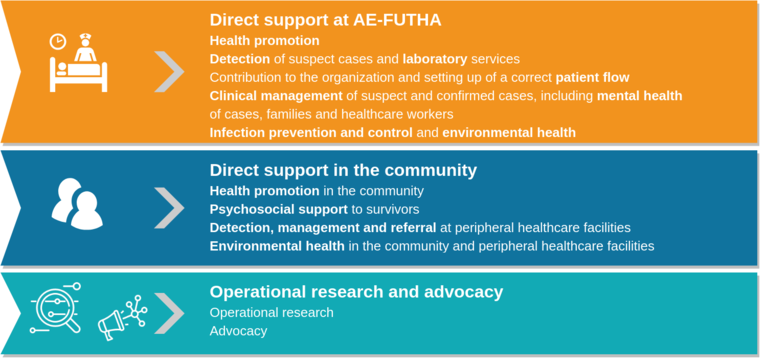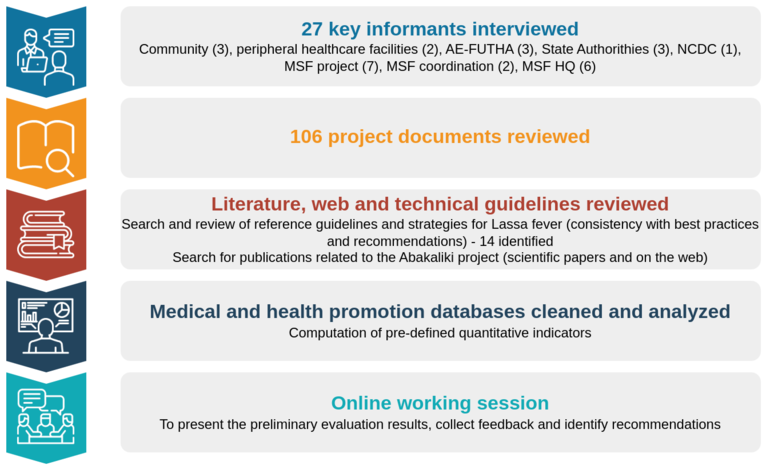Evaluation of MSF's Lassa fever project in Abakaliki, Nigeria
Project details
Year: 2023
Client: Médecins sans Frontières - Stockholm Evaluation Unit
Objectives:
The overarching objectives of the evaluation were to:
- Assess the achievements of the Lassa fever project in Abakaliki, Nigeria, against its planned objectives and highlight lessons learned.
- Provide recommendations to inform and improve future project planning and implementation based on the lessons learned.
Deliverables:
- Inception report
- Facilitator’s agenda and supporting material for the working session
- Final evaluation report
- Webinar slide deck
The final evaluation report is publicly available on the MSF Intersectional Evaluation Group website .
Performed activities
The Lassa fever project in Abakaliki, Nigeria was initiated by MSF-OCB following the 2018 Lassa fever outbreak in the country. An emergency intervention led to a longer-term project to support the Lassa fever response, as well as to gather clinical knowledge, improve diagnosis and treatment, and catalyse policy changes at national level through operational research and advocacy. This project started end of 2018 for an initial duration of 4 years and was later extended until 2025.

Figure 1. Main areas of work of the MSF Abakaliki project on Lassa fever
In order to improve the relevance, effectiveness and quality of its interventions, MSF, through its Stockholm Evaluation Unit, has contracted Sigia to conduct an evaluation of the project from its onset until the end of 2022. The following activities were conducted to inform the evaluation:
- 27 key informant interviews performed on-site and remotely
- A desk review of 106 project documents
- A literature and web review to retrieve reference guidelines and strategies for Lassa fever
- A search for publications related to the Abakaliki project
- Quantitative analysis of medical and health promotion project data
- An online working session with MSF staff to co-create recommendations

Figure 2. Activities performed for the evaluation
The evaluation report provides actionable recommendations and findings for each of the following evaluation questions:
- To what extent was the intervention conceived and its strategy implemented to respond to the needs of the general community, including healthcare workers?
- To what extent was the intervention conceived and its strategy implemented to trigger policy changes and improve diagnostic and treatment of Lassa fever patients at the national and international levels?
- How coherent and connected was the project with other resources, initiatives and stakeholders involved in research, detection and response to Lassa fever at the reference hospital, peripheral healthcare facilities, state level, national level, and international level?
- To what extent has the project achieved its expected results and planned activities for each of its area of work?
- To what extent have resources been available for the project and used efficiently?
- What are the main benefits achieved by the project?
- What are the positive and negative unintended consequences of the project?
- What results of the project will live on after its completion, and which results are not likely to?
- To what extent measures have been put in place to ensure the project results and benefits are sustained and improved in the coming years?
- What were the main challenges and lessons learned for each topic?
- What are the main recommendations derived from the project for the design, implementation and management of future projects?
The final evaluation report is publicly available on the MSF Intersectional Evaluation Group website .
